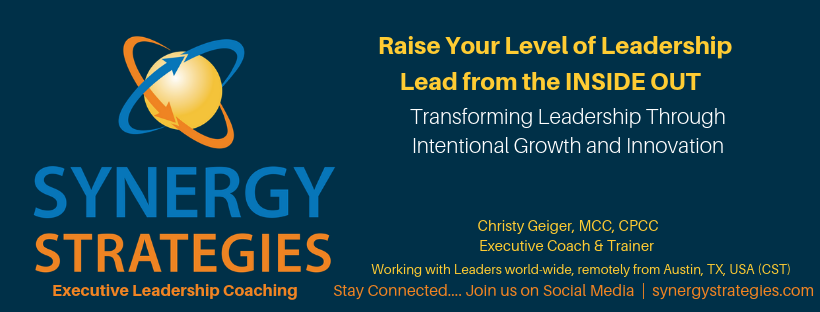In the book, The Power of Full Engagement, Jim Loehr and Tony Schwartz offer a paradigm for time management which focuses on leveraging energy rather than time. Loehr says, “The ultimate measure of our lives is not how much time we spend on the planet, but rather how much energy we invest in the time we have.”[1] Based on the authors’ concept of harnessing your energy to be in FULL ENGAGEMENT,[2] here are some key strategies to help you to empty your plate and accomplish more:
1) Manage your energy, not your time.
Start paying attention to your body. If you experience afternoon fatigue, consider the source. Is it your diet? Are you getting only a little sleep? “Pushing through” tasks when your energy is low causes ineffectiveness. When you’re sharp and focused, you can complete the job more quickly.
- When do you have the most energy? Tackle hardest projects at that time.
- When do you have the least? Take breaks. Schedule power naps, workout, or other activities that require less focus.
- Consider what is zapping your energy. Are you doing things that are not in line with your values? Are you procrastinating? Identify the times that you have energy and times that you don’t. What are you doing differently?
2) Downtime is key for your success.
While it would be great to run at 110% all the time, our bodies require food, rest and relaxation. Many successful people recommend one day a week that you do NO WORK, giving you more energy for the other six days of the week. Think of your body as a battery and your day off as the charger. Constantly unplugging it and using it will drain it, and you’ll never get fully charged if you keep unplugging the battery and using it. It takes three times as long to charge a dead battery than it does to keep it charged (and who wants to run out of juice mid-task), so don’t wait until you are dead; charge yourself weekly with downtime.
3) Rituals help to maintain focus.
When we are overwhelmed or overloaded, we operate less efficiently and waste time. The authors of The Power of Full Engagement recommend RITUALS for optimizing energy and time. Rituals set up a recurring time and pattern for needed tasks and behaviors. Coaches commonly suggest establishing 10 daily habits, or rituals, that support what you have to do anyway. However, by linking them together in a set time and pattern, you go on autopilot and accomplish them quickly and easily. Habits or rituals are daily tasks that take a short amount of time and add to your productivity, e.g., making to-do lists, confirming appointments, bill paying, clearing your desk, filing, returning phone calls, checking e-mail, drinking water, eating fruit, etc.
4) Purpose fuels performance.
Know why you are doing what you are doing. We get caught up in doing tasks because we always have done them, think we need to do them or just should do them. “Shoulds” are a performance killer. They never quite reach priority status on our to-do list. Why is the task important? Why do you care that it gets done? Things that we approach in a lackadaisical manner take longer to accomplish, stand to be interrupted, are likely to be put off or left undone or are completed with loose ends. When you work with purpose, you complete things quickly, stay focused and generate momentum. This will allow you to finish the current objective in less time and go on to accomplish even more.
5) Work in sprints (small bursts of focused energy).
Life is full of interruptions and urgent or unplanned tasks. How do you keep yourself from falling victim to a reactionary cycle of running from one urgent thing to the next, praying for a minute to last longer? Schedule sprint times where you are 100% focused on one thing. I recommend sprints be 30 or 50-minute time blocks. Close the doors, shut off the phone, have a full drink, and clear all distractions for your sprint time. Know exactly what you want to accomplish, and work only on that. You’ll be amazed at how much you can get done, creating momentum and focus, which lends itself to building energy naturally. You will often get more done in this period than you can in an entire day of random interruptions and urgent demands. This is a great time to work on important tasks such as writing, billing, customer service, or things that if they don’t get done will not kill you now, but will require serious time and attention if neglected.
What is important that you need to do? What will you plan to begin doing right now that will allow you to harness your energy and gain more time? Pick one thing you will do today and enjoy the renewed energy and time you gain!
[1] (New York: Free Press, 2003), 4.
[2] Ibid.,6.



